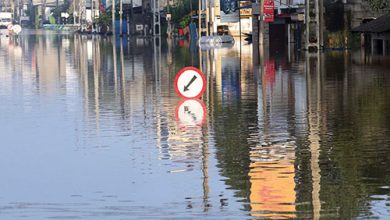YOUTH FORUM

Compiled by Nicola Jayasundera
WALKING A NARROW BRIDGE
Aamina Subuki reflects on what it means to trust in a nation still healing
Q: What’s the good, the bad and the ugly in Sri Lanka?
A: In Sri Lanka, the good still scintillates – cinnamon scented winds, temples and mosques reaching the same sky, calm oceans, and groups of brown skinned people of diverse races, some simply draped, others richly adorned – yet, all harmonious in colour and spirit.
The bad however, creeps in quietly. Promises sour before they ripen and leaders preach unity while tightening invisible chains. A dream of utopia – where humanity stands as one family, free of boundaries and divisions – remains the language of poets and the comfort of fairy tales.
And the ugly in Sri Lanka is how such sublime notions of harmony are too often overshadowed by racism and social divides.
Q: And what are the challenges facing the country today?
A: It is difficult to understand the issued facing the nation without acknowledging the three decades of conflict and manner in which it ended. We may welcome the quiet that followed but silence does not erase the scars; the past sits heavy, seeping into politics and trust.
The present situation is a product of this history. In addition, there are new complexities such as the impact of the first global pandemic of the Anthropocene era.
And today, the country faces another kind of loss – not on the battlefield but through departures. As skilled professionals in medicine, IT and business leave, in search of stability and opportunity, offices grow emptier and clinics quieter, devoid of the very lifeblood needed for recovery.
Q: What are the challenges facing young people in Sri Lanka today?
A: Young people walk a narrow bridge.
A mismatch between the school curriculum and current labour market demands, limited access to digital tools and resources, the notable digital divide and the gap in mentoring for 21st century skills – including digital literacy and innovation form a maze of obstacles confronting youth today.
Q: So how can our youth contribute to national progress?
A: The youth must immerse themselves in something – a craft, a skill or a field – until it becomes a part of who they are. In their hands lies hope: that every effort can churn the slow wheels of a nation and mend its frayed edges.
Q: What type of leadership do you think the world needs right now?
A: The canvas we live in is in urgent need of leaders who don’t avert their eyes. In the malefic malaise of human conflict, the rubble chants louder than the living.
Palestine shows us what happens when leadership becomes an exercise in resolutions and condemnations – gestures that fade like smoke while children sleep beneath shattered roofs.
Venom and vengeance know no bounds. Traditions built and nurtured over centuries have taken on a different form; war cries have replaced the sweet lullabies that once laid the young to sleep.
And weapons of modern warfare have taken control of the psyche of those in power.
The world needs leaders who are ready to carry the weight of human suffering without turning it into a spectacle – those who believe true authority lies not in domination but in the fragile, stubborn act of protecting dignity where it’s most denied.
Q: How has the advent of AI and technology shaped your view of the future?
A: AI is a double edged sword. I see tools that connect us and create opportunities once thought impossible.
I also see shadows – human voices drowned out by algorithms and power concentrated in invisible hands. It leaves me both hopeful and uneasy as though we are building the future faster than we’re learning how to live in it.
Q: As a young person, what are your hopes for and concerns about the future?
A: I hope for a future where progress doesn’t demean the pulse of life – where ambition and growth coexist with understanding. Yet, I fear a world where we may be lost in the rat race, allowing joy, friendship and meaning to evaporate like mist in a sunless corridor.
Q: If you could launch a project or movement in Sri Lanka, what would it be – and why?
A: If I were to launch a movement, it would be to ensure that every overlooked voice is heard.
Only when all are acknowledged can a nation advance with true purpose and the future cannot take shape until every whispered truth finds its place.







